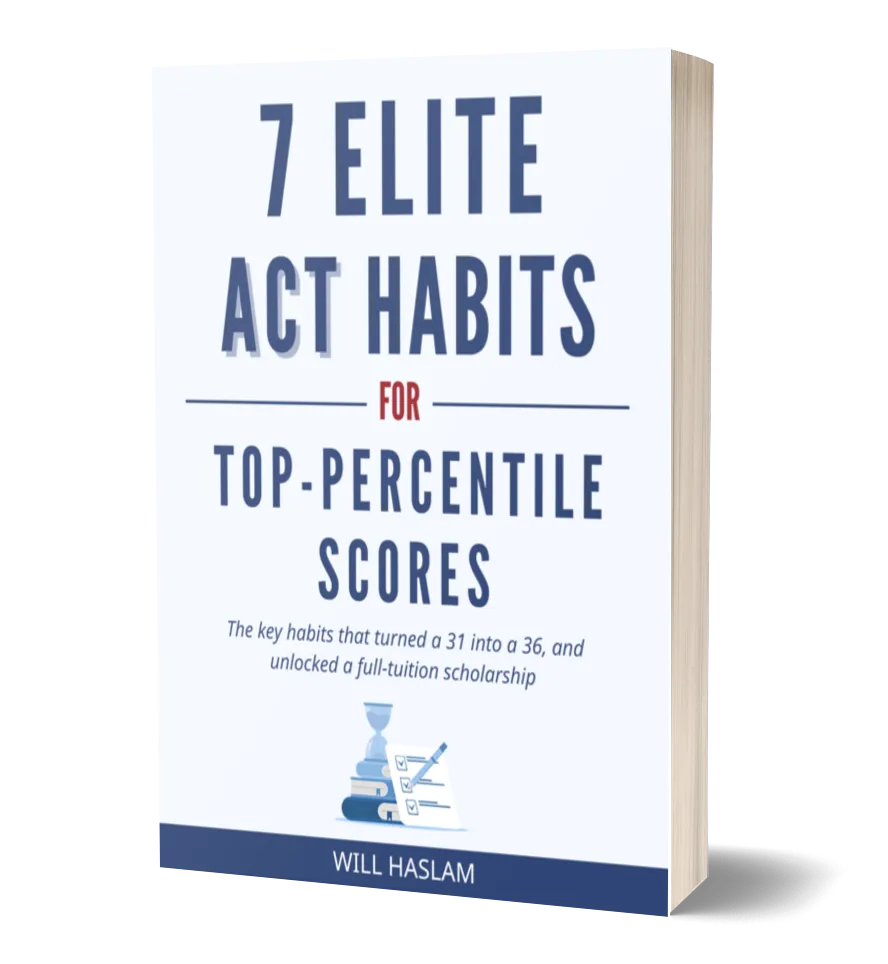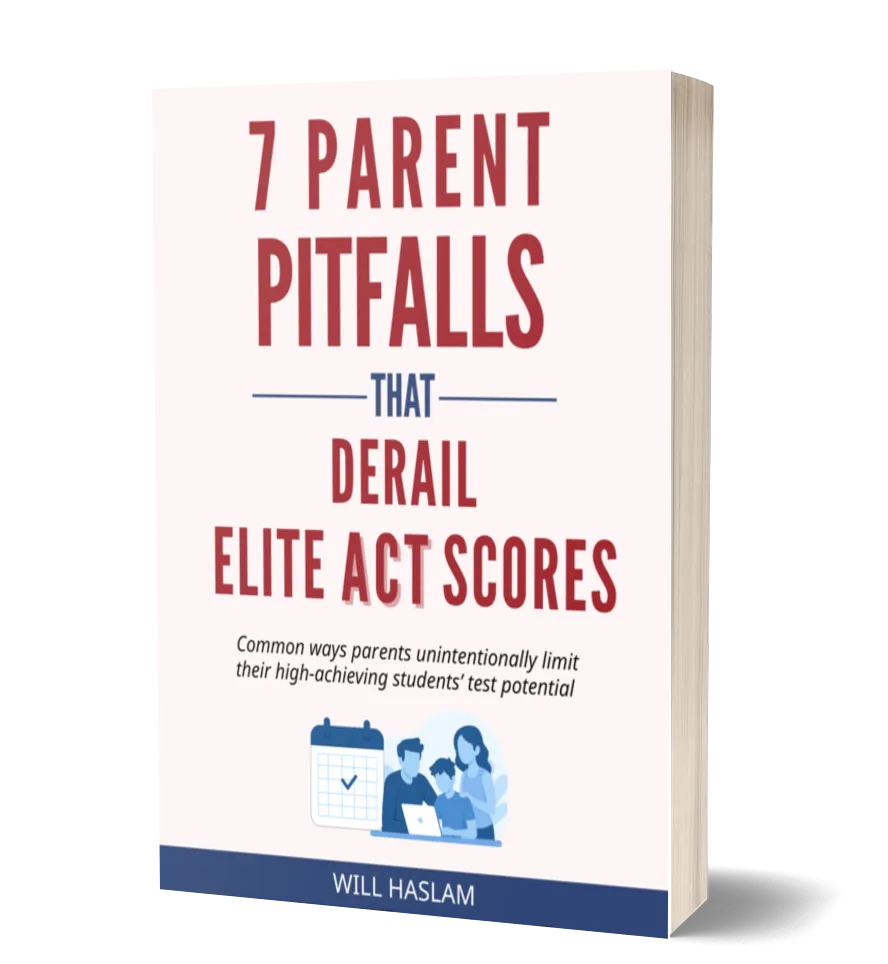Most students have questions about taking and scoring well on the ACT.
Knowing how to take the ACT and score well can be daunting! How much do I need to study? What's a good score? How do I study with all of the other things I have going on?
For high-achieving students, tackling these unknowns can be frustrating. I've put together answers to some of the more common questions about taking and scoring well on the ACT. These are based on my years as a tutor and my own journey from a 31 to a 36 and a full tuition scholarship. I'm building this list out so it will be comprehensive - check back often for updates.
If you have any questions that aren't answered here, shoot me an email at [email protected] and I'd be happy to answer.
Commonly Asked Questions About The ACT
GENERAL ACT QUESTIONS
How should I start preparing for the ACT?
- Decide on a goal score based on target colleges and their score-based scholarships.
- Check upcoming ACT dates (your school may offer one free sitting).
- Buy the Official ACT Prep Guide (2024–2025 recommended).
- Take practice tests → score → analyze mistakes → drill weak areas → repeat.
- Consider a tutor/test-prep service to improve faster.
When is the best time to start ACT prep?
- Earlier is better—scholarship dollars make prep time highly valuable.
- Start seriously at the beginning of junior year for ~18 months before applications.
How do I create an effective study schedule?
- Pick your next test date to anchor the timeline.
- Take a diagnostic to find current level and weak topics.
- Allocate more time to weaker topics; schedule periodic full sections/tests.
- Adjust based on progress data; prioritize daily consistency.
What are the best books/resources for ACT prep?
- Use official ACT materials first (2024–2025 guide has multiple real practice tests).
- After you finish, add prior-year official guides.
- Use free official practice tests from the ACT website as extras.
Should I self-study or get a course/tutor?
- If study skills are strong and the score gap is small, self-study can work.
- If the score jump is large, time is short, or one section is stubborn, consider tutoring.
- Targeted section tutoring can be cost-effective.
How do I balance ACT prep with school and activities?
- Trim lower-value commitments during prep season if needed.
- Schedule a daily start/end time for ACT study—treat it like a class.
- On busy days, do a small session rather than skipping entirely.
- Use a tutor/course for pacing and accountability if helpful.
How much time should I study each week?
- Depends on your score gap and timeline; err slightly on “more” (scholarship ROI!).
- Be realistic about time demands—remember you can take the ACT multiple times.
What should I focus on in the last few days?
- Light review of concepts you consistently miss (e.g., matrices, comma rules).
- Prioritize sleep, nutrition, hydration, and calm focus (mental fitness).
Should I study the night before or rest?
- If you haven’t prepped much, a light cram can help—but keep it short.
- If you’ve been consistent, prioritize a full night’s sleep over cramming.
How do I review mistakes from practice tests?
- Simulate real timing → score → log every wrong answer.
- Diagnose the cause (careless vs. concept/skill gap).
- Drill weak skills (e.g., trig identities, punctuation rules) until fluent.
- Retest and repeat the cycle.
Download the Free Guides


I want to help. Let's chat.
Don’t hesitate to contact me for a 15-minute consultation, free of charge. I’ll answer any question you have, whether it’s about my cohort or about ACT prep in general.
I always respond to my email.

